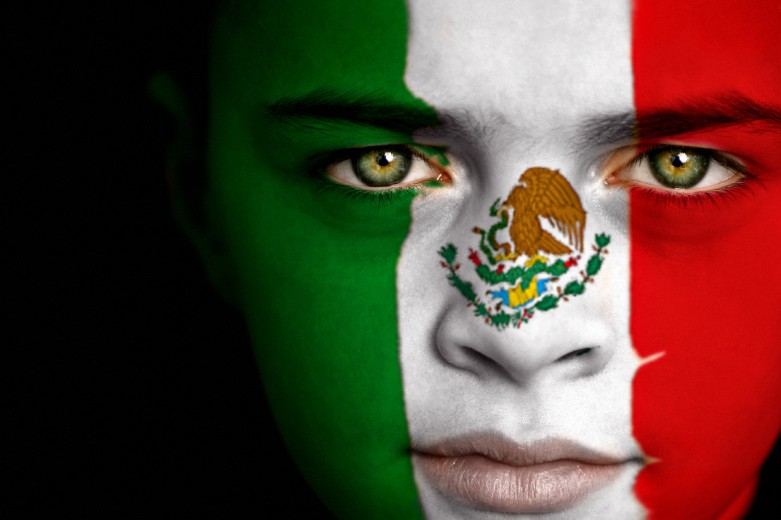
“When Mexico sends its people, they’re not sending their best…They’re sending people that have lots of problems, and they’re bringing those problems with them. They’re bringing drugs. They’re bringing crime. They’re rapists. And some, I assume, are good people.” These were the infamous words spewed by Donald Trump about Mexicans. when he announced his candidacy.
Although his base celebrated with glee, many others were dismayed. They believed this was an inaccurate portrayal of an entire ethnic group and rooted in racism. I wonder if the dismay arose from what he said or that he was publicizing the sentiment Americans have felt towards Mexicans for the last 150 years?
This hatred and bigotry for Mexicans did not begin with Trump, he just made it part of his campaign platform. Since the build up to the Mexican-American war America has held this sentiment . Blaming Mexico as a pretext to aggression is old hat. In 1846, President James Polk a Democrat, stated that “Mexico has passed the boundary of the United States, has invaded our territory and shed American blood upon the American soil.”
If not for racism, Mexico would have been completely taken by the U.S. Politicians like John C. Calhoun stated in a speech to the U.S. Senate that, “To incorporate Mexico, would be the very first instance of the kind of incorporating an Indian race… I protest against such a union as that! Ours, sir, is the Government of a white race.”
In the annexed lands of the present day American Southwest, Mexican citizens became foreigners in their own lands. The hatred and assaults continued long after the Treaty of Guadalupe was signed to end military hostilities. California, in the midst of the Gold Rush, became a haven of criminality and state sanctioned genocide against Native Americans and Mexicans. From California to Texas, mobs of Anglos and government agents like the Texas Rangers continued the war with murder and lynchings of Mexicans.
This history set the stage for what it would mean to be Mexican in the USA. Knowing this, it is no wonder Mexicans have had such an identity crisis. To be Mexican meant to be hated and reviled.
A generation after the Mexican American War, Mexicans began to identify as anything but. In the early 20th century social advocacy groups like the League of United Latin American Citizens (LULAC) formed to represent Mexican American interests. The first order of business was to identify as Latin instead of Mexican. LULAC sought to claim European origins and distancing Mexican identity from both Mexico and its indigenous roots. The group even discouraged speaking Spanish as a means of being accepted by Anglo society.
Assimilation was the goal of advocacy groups like LULAC until the Chicano Movement of the 1960s and 1970s. This moment turned that notion on its head and outright rejected it. A renewed push to be accepted as a people who were not foreigners in their own land called for a reclamation of identity.
During this time the Nixon administration ushered in the term “Hispanic” to identify people with Spanish-speaking origins. The umbrella term, used for census purposes, lumped Mexicans, Puerto Ricans, Cubans, and other survivors of Spanish colonization into one group. I view it as a way to Anglicise a growing brown population.
This move not only emphasized assimilation but created infighting among groups. Groups that focused on self-determination, cultural affirmation like MEChA, MESA, and advocacy groups like the National Council de La Raza (NCLR) were comprised primarily of Mexican Americans. The newer immigrants from South American and Latin Caribbean nations joined and created internal pressure against identifying as anything Mexican-related. While disguising itself as “inclusivity” the push to change names really attacked anything identifying with Mexicaness or Chicanismo as “ethnocentric” and “exclusionary.” In 2019 there has been a move to remove the term Chicano from MEChA and a rebranding NCLR (Raza being a term used primarily by Chicanos) to UnidosUS.
The NCLR was founded by Mexicans in the Southwest to serve the Mexican population in the United States who were subject to segregation and discrimination for decades. But because it has welcomed other Spanish-speaking ethnic groups, it has to be “more inclusive” by acquiescing its very identity? In short, be less Mexican?
Those of Mexican origin in the United States. Whether by birth or by immigration, appear to be getting it from both sides. America doesn’t welcome “Mexicans” (unless it’s food or invisible labor) because of its history of war and racism with Mexico. Other “Hispanic” groups don’t like being associated with Mexicans. Perhaps the remnants of the racial caste system enforced by Spanish colonizers. Or maybe it’s the result of newer groups understanding what the treatment of “Mexicans” implies and as a result, not wanting to suffer similar consequences.
Or maybe it’s the learned behavior in a country whose president sets the cultural tone and ethos of a nation.
In 2019 it seems everyone who is Mexican at home has to publicly identify as Latino or even Latinx. Apparently in 1848 after the military hostilities of the Mexican American War ceased, the culture war against Mexicans continued and persists to this day. Mexican as an identity appears to be the equivalent of a racial slur. But in the proverbial Barrio, those who hold onto their orgullo or Mexicanidad (Mexicayotl in indigenous Nahuatl). Those who put self- affirmation over assimilation, still identify as Mexican. Maybe that’s why they aren’t the ones readily accepted in positions of influence in national organizations or made to feel welcome in their own organizations and skin. Latino now seems to be the more socially accepted term despite the fact the majority of “Latinos” in the United States are of Mexican heritage. Anything but Mexican is the new accepted norm.
